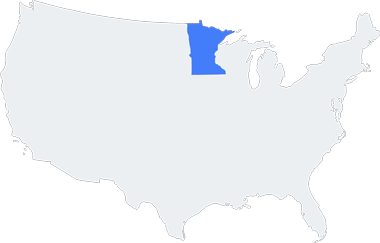NHA in Action
The Nurtured Heart Approach is being successfully used all over the globe in thousands of schools, communities, child-advocate agencies and treatment centers to awaken children and adults to their greatness and create flourishing environments.A Better Way
Sallie B. Howard School an NHA Endorsed School

Location: Wilson, NC
Principal: Dr. JoAnne Woodard
Population Served: Serves predominantly African American students grades K-8.
NHA Success: Nurtured Heart Institute awarded SBHS the designation of NHA Endorsed Organization in 2013 when SBHS met the rigorous requirements, training over 80% of the staff in NHA, as well as engaging in continuing education and community development with NHA. Sallie B Howard is certainly transforming lives.
Rocky River Elementary, Visit NHA Classrooms

Location: Monroe, NC
Principal: Sherry Richardson
Population Served: Serves 800 students in grades K-5. 54% Free & Reduced lunch.
NHA Success: Transformed classroom management by energizing students’ experience of success. Children monitor themselves. Teachers claim that the classroom environment becomes easier, a great place to be.
Tolson Elementary, A Title I School

Location: Tucson, AZ
Principal: Dr. Maria Figeuroa (now serving as Director of Mexican American Student Services)
Population Served: Over 500 children. Over 80% free or reduced lunch.
NHA Success: The year prior to adopting the Nurtured Heart Approach, Tolson Elementary had eight times the number of school suspensions as the next worst in this category among over 60 other elementary schools in the district. Since the implementation of NHA there has only been one child suspended twice, no children at all diagnosed as ADHD and no new children on medications.
NHA & ADHD
A snapshot of the Nurtured Heart Approach® has earned a prominent place in the conversation of effective interventions for the symptoms considered ADHD.Winsted Elementary - Channel 11 Minneapolis- St. Paul News Report

Location: Winsted, MN
Leadership: Stacie Nielsen, School Psychologist
Population Served: Special Ed students in a traditional elementary school.
NHA Success: Oppositional students are now participating in curriculum, as are all the students. Parents appreciate how the best is being seen and brought out in their children.
Warren County Learning Center, Special Education Facility

Location: Franklin, OH
Leadership: Pam Harsacky
Population Served: WCLC is a separate public school special education facility which provides services in grades 1-12 for 63 students experiencing social and emotional problems – mental health disorders, autism, and other health impairments.
NHA Success: The cost from the Warren County Clinical Fund has gone from $1,100 per child in 2001 to $167 in 2010. Not only has the school saved the taxpayers money but it has been successful in keeping children in their homes – out of residential placements, hospitalizations and foster placements.
North Education Center, - Setting IV for Special Needs

Location: Intermediate District 287 near Minneapolis, Minnesota
Leadership: Amy Sward
Population Served: Students with serious behavioral issues are referred from 12 member districts whose special education strategies haven’t met the complex needs of these students.
NHA Success: Listening comprehension skills were exploding, increasing 1.5 years over the course of a year; went from a full-time School Resource Officer to part-time. Now, they have a setting IV program without a time-out room! Staff made comments about running out of curriculum because they could teach more to their students.
The Drenk Center, Foster Care Agency

Location: New Jersey
As of 2011 the Drenk Center, a large Foster Care agency in New Jersey (which was absorbed by Legacy Treatment Services in 2014) reported that they have a 0 (zero) rate of broken placements and this goes back to all of 2007. In years prior to 2007, before teaching workers and foster parents the Nurtured Heart Approach, their annual rate of broken placements was in the range of 20-25%. Broken placements involve a great deal of costs as well as a continuation of problems for the children involved. In contrast, when placements go well and foster parents experience the beauty of positively influencing a child, the foster parents actually welcome more foster children into their home. When it does not go well, well-intentioned parents often call an end to the dream of helping children in this way.
Focus on Youth, Foster Care Agency

Location: Ohio
Focus on Youth, a large Foster Care agency in Ohio, has reported in the period of 2007 to 2009 that not only are their broken placements low as a result of using the Nurtured Heart Approach in all modes of their treatment and care but their utilization of medications for these child have dropped to around 18% with a program average population of 70 children. This is in stark contrast to the very high percentage of foster children on medication management in the US as a whole. They also report that in using NHA in all aspects of their organization that the average length of time that parents continue fostering has increased from 2 years (prior to NHA) to 5 + years at present.
Casa de los Ninos, Child Abuse Prevention

Location: Arizona
Casa de los Ninos in Tucson, Arizona has a host of prevention programs and ongoing support of neglected and abused children. Their agency “helps protect our community’s greatest natural resource: children. Each child is an individual who cannot be replaced. Every child who dies from abuse or neglect, diminishes us all.”
Casa de los Ninos integrates the Nurtured Heart Approach into a variety of programs from shelters to respite care to foster/adoptive care.
Tucson HeadStart Program, Early Childhood Development

Location: Arizona
The city of Tucson HeadStart Program adopted the Nurtured Heart Approach in the year 1999. Initially they sought an approach for working with challenging children and the many chaotic classrooms that existed. Once they implemented NHA, they quickly realized the value of using NHA class-wide for all children.
In addition to reporting that the approach helped all the children to flourish beyond past methods, it is also reported that it helped them to help the at-risk children to do well within the classroom setting without needing outside services.
The data they have collected for the 3,000 underprivileged children they serve each year confirms that in this time period they have not needed to send a child for a diagnostic assessment or medication services at all.
Alameda County, CA - NHA in Violence Prevention

Location: California
Post-Prision Community Re-entry Program, Alameda County, CA (includes Oakland, Berkeley and other municipalities)
From Dr. Lorie Hill: “I use the Nurtured Heart Approach as part of my work with people returning from prison to Alameda County, which includes Oakland, Berkeley and other municipalities. The people I work with have HIV or AIDS and serious and complex Post Traumatic Stress Disorder. I use my approach to violence prevention along with EMDR, mindfulness and attachment theories as well.”
“The Nurtured Heart Approach provides a powerful framework for working with people returning from prisons to their communities! Most of us, at least in the U.S., don’t get nearly enough praise or acknowledgment. So to praise people returning from prison for their successes, and to acknowledge their hard work and skill in surviving, emphasizes people’s strengths. People in prison often receive very little acknowledgment or praise.”
Albuquerque Department of Senior Affairs, Aging Well for Seniors

Location: New Mexico
The City of Albuquerque Department of Senior Affairs has adopted the Nurtured Heart Approach across its programing and in how it functions as a staff.
The Senior Affair’s director, Jorja Brasher is particularly excited about how this approach lends itself to overall health and well-being of the program participants and to the endeavors of “aging well.” She talks about what she’s seeing as early evidence of the program’s success in citing such thing as elders being more active and playful, enjoying themselves more and having more of a purpose.
One of the programs based entirely on the Nurtured Heart Approach is called Grandparents Raising Grandchildren, a program holding the intention of helping grandparents to feel vital in imparting wisdom and success to their grandchildren and helping the grandparents to feel revitalized in the impact they are having and in feeling great about seeing this as a “building of their enduring legacy, for now and beyond.” The program is the conceptual creation of Wayne and Jolene Mayes.
Pima County Juvenile Court, NHA in Juvenile Justice

Location: Arizona
Findings from the 1999 “Year in Review” study conducted by Pima County Juvenile Court in relation to the Pre-Adolescent Diversion Project (PADP) of Tucson’s Child and Family Resources. The project’s parenting component and several other aspects of the program including direct services to children were based on the Nurtured Heart Approach. The project was a 16-hour workshop series over 4 weeks for first offending youth and their families.
According to Pima County Juvenile Court researchers, first offenders referred to other Juvenile Court programs have shown a 32% rate of recidivism, whereas the rate of re-offense for those youth who have completed PADP with their families is only 18%. This represents a 45% rate of improvement over other diversionary programs.
Typically, youth who re-offend do so at escalating rates of intensity, committing bigger crimes and more often. The graduates of PADP who did re-offend committed lesser offenses. The national average at the time of this study was first-offenders having 5 subsequent crimes as a juvenile at escalating levels of severity. The 18% in this study who re-offended had an average of only 1 subsequent crime at an average lesser level of severity than the original offense.
The statistical significance of the 18% rate of recidivism is .00001. This occurrence could not have happened by chance alone. Therefore, the strategies and approach of the Pre-Adolescent Diversion Project have been shown to produce noticeable improvement.
Banner Estrella Medical Center, NHA in a Hospital Setting

Location: Arizona
Banner Estrella Medical Center, a 214-bed acute care facility in Phoenix, Arizona, has a culture that combines cutting-edge innovation with high doses of kindness in support of its mission to make a difference in people’s lives through excellent patient care. In keeping with this culture of innovation and kindness, the Medical Surgical Department decided to launch The Nurtured Heart Approach to leaders during an all-day retreat in March 2011. The goal: create a culture of “Greatness” where associates make choices from a place of personal strength and inner wealth.
This NHA retreat has had significant impact on the Medical Surgical unit. In August, the unit participated in a hospital-wide survey, which measures culture, effectiveness and engagement. This survey included the question “My immediate leader makes me feel valued and part of the team.” In 2010, that question carried a 74 percent favorable response rate for the Medical Surgical unit. This year, after five months of being recognized in the Nurtured Heart way, the Medical Surgical unit members answered the same question with an 87 percent favorable response rate. This national survey has a “best in class” response rate at 78 percent. Overall, all Medical Surgical leaders received exceptionally high scores. They have also seen a marked increase in engagement with the highest participation ever in the department Shared Leadership, which is led entirely by front-line associates. Every day, as the leaders interact with their direct reports, they consistently show sincere appreciation and purposefully acknowledge qualities of greatness. Leaders perceive that this Nurtured Heart Approach is having a positive impact, and measurable outcomes are proving them correct.
Center for the Difficult Child, Impact on Community: Mental Health Services and Costs

Location: Arizona
The Center for the Difficult Child, Founded by Howard Glasser, Creator of the Nurtured Heart Approach®, was able to greatly contribute to the cost-effectiveness of treatment for the Pima County Mental Health Program (Tucson AZ). In the five years of its existence and largely in relation to the success of this treatment approach, there were no children who needed escalating interventions and higher levels of care such as admissions into group homes, residential treatment, hospitalization or other out-of-home placements. This is despite the fact that many of the children referred to The Center for the Difficult Child over the years had one or more mental health related hospitalizations prior to referral. This represented enormous savings to the system that then had more resources to fund prevention and other innovative programming.
The Center for the Difficult Child was paid to treat 130 children and their families per year but because the average case closed within 3 months and many cases closed permanently, this treatment center was able to average helping over 250 cases a year successfully close completely from the system.
Many consumers do not qualify for the public mental health system and find the cost of on-going private treatment prohibitive. The Nurtured Heart Approach, typically taught for 4-8 total hours over a four-week period, is very well-suited to multi-family group scenarios, thus allowing families without insurance benefits to have an alternative form of affordable treatment.
Peace Academy

Location: North Dakota
Leadership: Jana Bruhschwein
Learning at Peace Academy is play-based and guided by the Nurtured Heart Approach, which focuses on building character and developing social and emotional skills, such as being able to interact with peers, taking directions from adults, and navigating transitions in the day.



